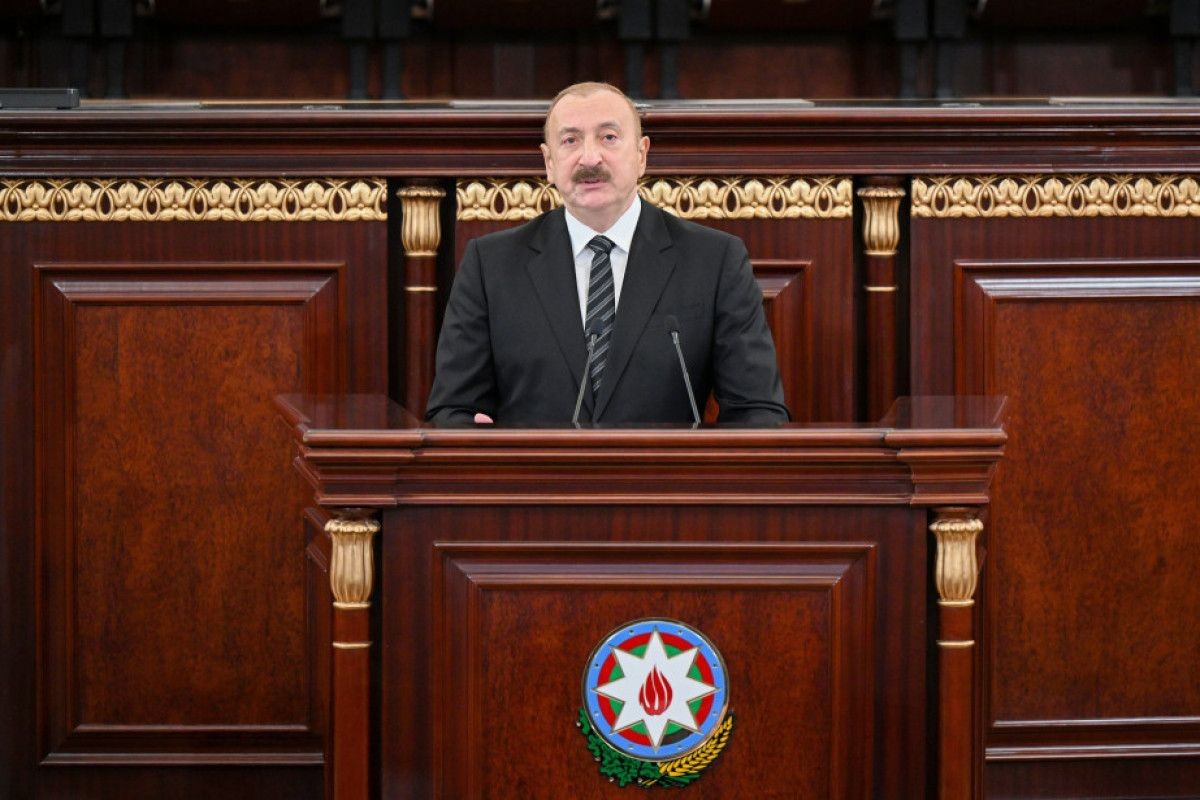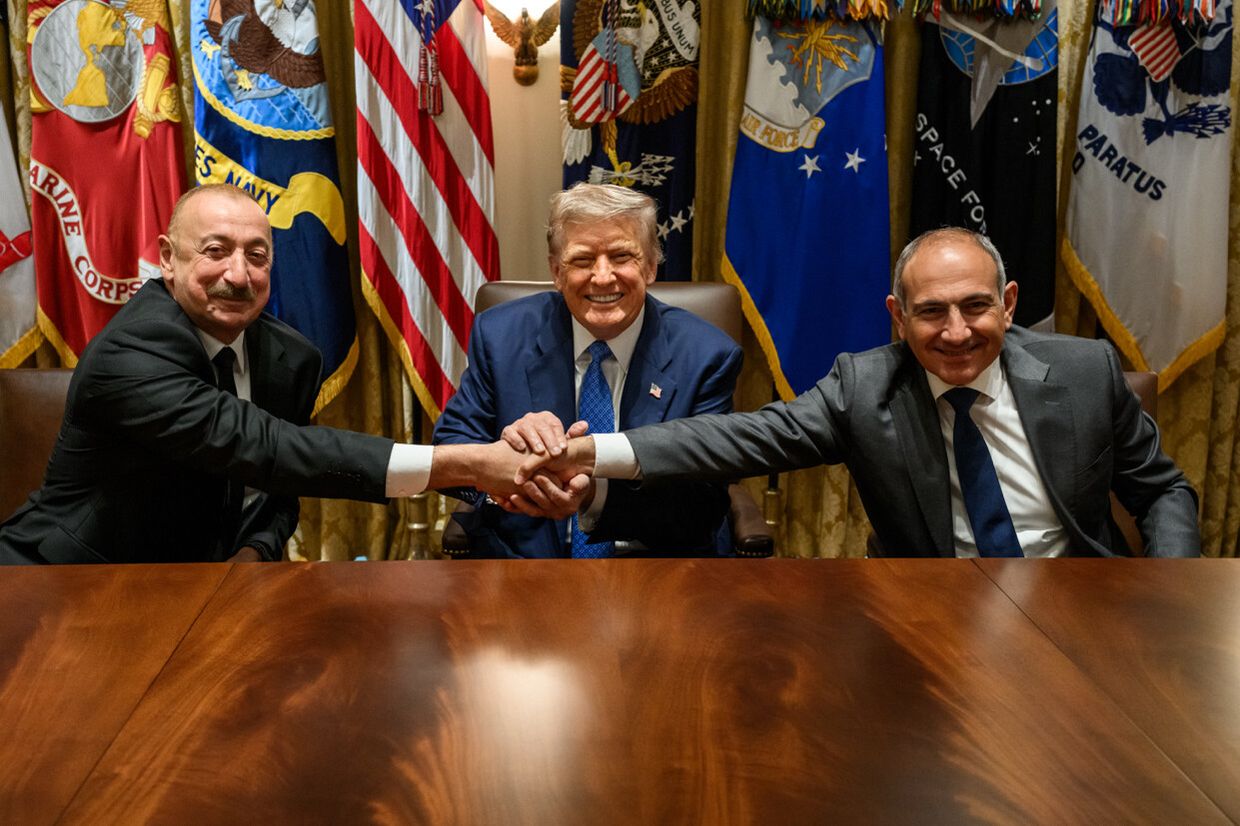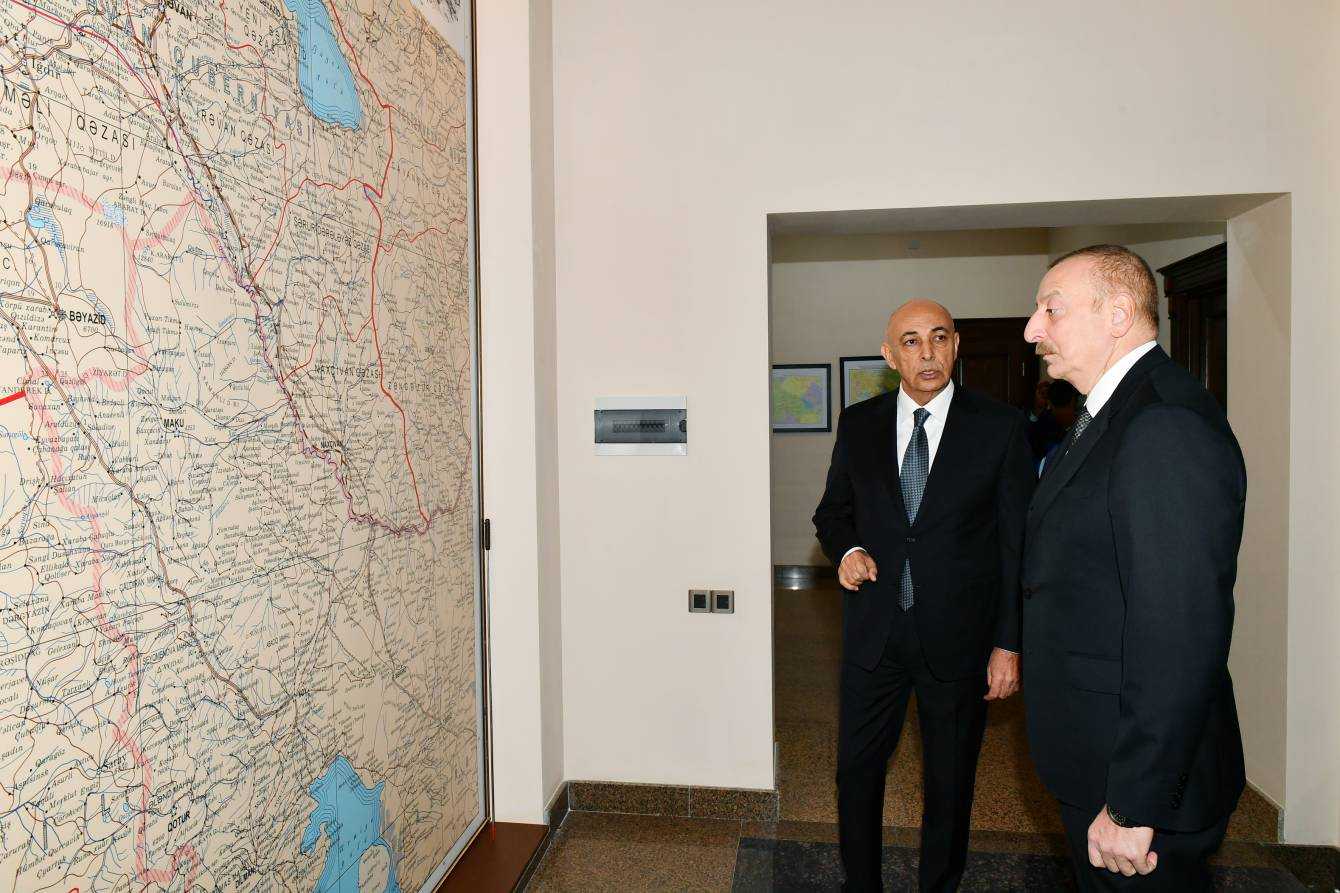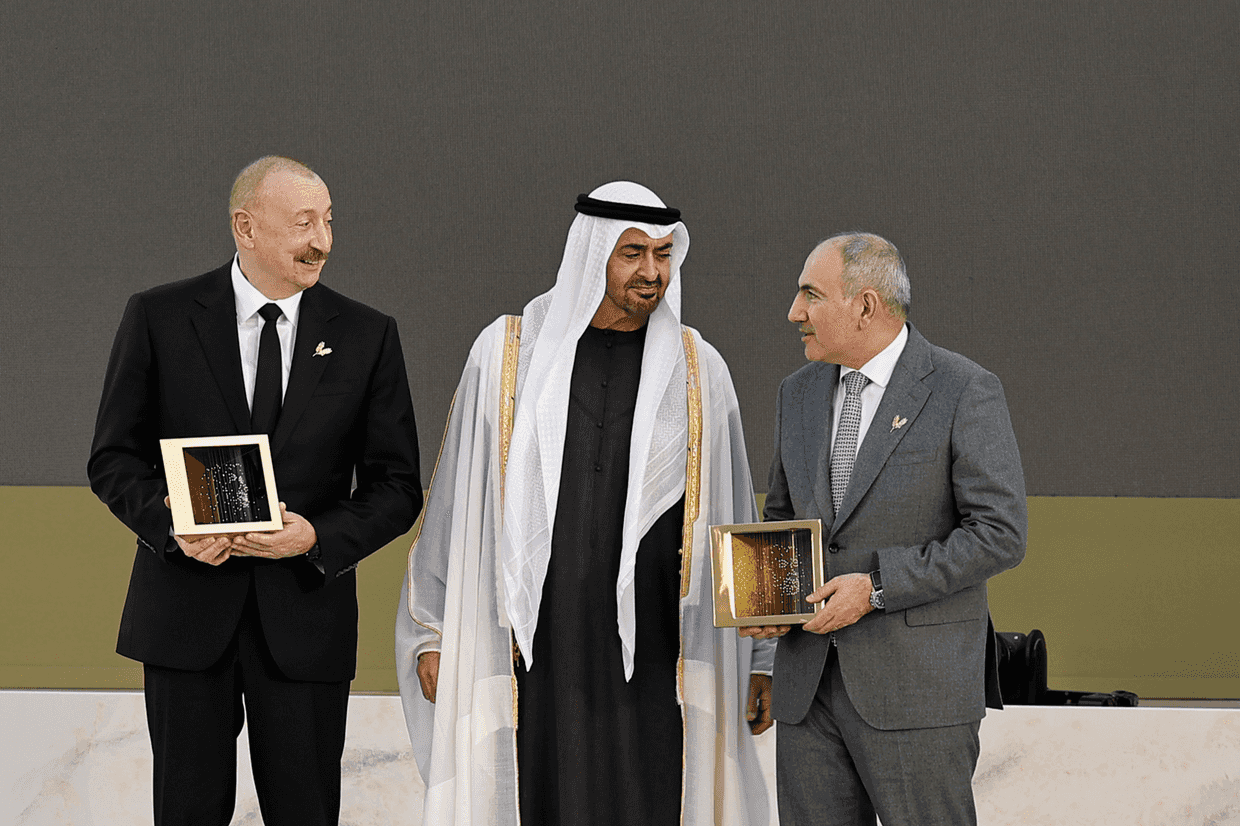Aliyev says Azerbaijanis must return to historical lands ‘not with tanks, but in cars’

Editor’s note: This article has been updated to include comments from Prime Minister Nikol Pashinyan.
Azerbaijani President Ilham Aliyev has made a series of controversial statements about Armenia during a speech on Monday, including that Azerbaijanis ‘must return to our historical lands’, referring to what is now modern-day Armenia.
In a subtle shift of tone from previous similar statements, Aliyev said the return should be ‘not with tanks, but in cars’, and that the prospect should ‘not intimidate the people or state of Armenia’.
However, other remarks from Aliyev’s speech sparked anger from some in Armenia, who viewed the comments as yet another implied claim on Armenian territory from Azerbaijan.
In particular, Aliyev said that more research should be done on how to facilitate the return of Azerbaijanis to areas in modern-day Armenia that were previously inhabited by Azerbaijanis before the mass ethnic cleansing and population exchange that accompanied the First Nagorno-Karabakh War.
‘It is enough to look at early-20th-century maps published by Tsarist Russia to see that the overwhelming majority of toponyms in what is now Armenia are of Azerbaijani origin. There was no Lake Sevan on those maps. There is Lake Goycha on those maps, along with all other Azerbaijani historical toponyms we use’, Aliyev said.
He further claimed, repeating a common revanchist narrative from the Azerbaijani side, that ‘Tsarist Russia [...] once brought Armenians from Iran and Eastern Anatolia [now modern-day Turkey] and settled them in [Nagorno-Karabakh] lands in order to alter the ethnic and religious composition here’.
This narrative has been repeatedly used by some in Azerbaijan to help bolster the false claims that Armenians are not native to Nagorno-Karabakh, and that their demographic dominance in the area was part of a deliberate plan orchestrated by the Russian Empire.
In response, Armenian Parliamentary Vice Speaker Ruben Rubinyan said the remarks were indicative of a narrative dwelling in the past.
‘If we go far enough back, at some point we really won’t see the name Sevan on old maps. Instead, we’ll see Geghama Sea or Gegharkunik Sea [referring to Armenian names for the lake in ancient history]. And we won’t see Azerbaijan either. But there’s no point in going back at all — we must move forward. That is precisely the whole meaning of the 8 August Declaration’, he wrote on Monday, referring to the documents signed in Washington between Aliyev, Prime Minister Nikol Pashinyan, and US President Donald Trump.
One of the key outcomes of the meeting was the initialling — which fell short of an official signing — of a peace treaty between Armenia and Azerbaijan, as well other measures aimed at normalising relations.
Later, Pashinyan also commented on Aliyev’s remarks on Tuesday, downplaying the notion they contained territorial claims by saying he was simply referring to the names as they were written on old maps from the Russian Empire.

This article was translated into Russian and republished by our partner SOVA.










